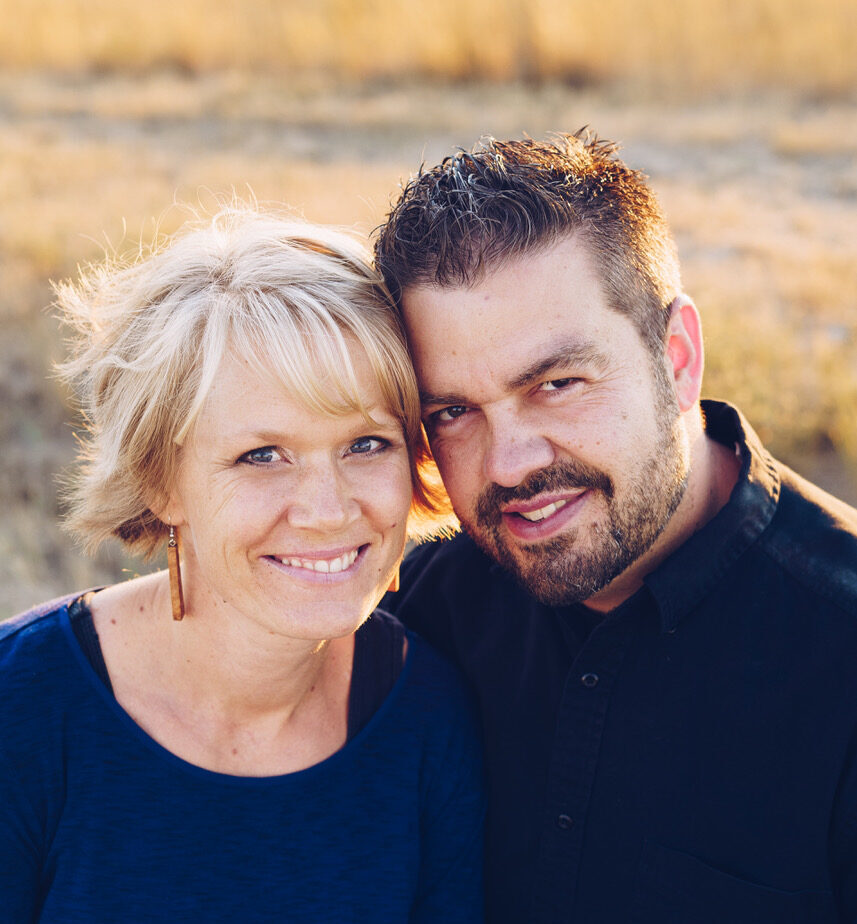
What Seeds Are You Planting With Your Tongue?
By Jesse Jost
Seeds are remarkable. They can lie dead and dormant for years. Yet put them in the soil and water them and new life magically springs forth with enough explosive power to crack concrete.
Seeds are always faithful to their DNA. They always reproduce according to their kind. You will never get a watermelon from a pumpkin seed. If you want a watermelon, you had better plant a watermelon.
Whether we realize it or not, our words are like seeds. They have the same explosive power to shape someone’s world. Proverbs says that “Death and Life are in the power of the tongue, and those who love it will eat its fruit.” (Prov 18:21)
The thing about words and seeds is you don’t have to realize what you are sowing to reap the consequences. We put some straw on our garden one year to protect our strawberries. What we didn’t realize was that the straw was full of Canadian thistle seeds. Those thistles are unbelievably nasty and sharp. They have taken over our garden and made weeding a nightmare.
It didn’t matter that we didn’t consciously sow those thistles. Just the same, we have been dealing with the fallout of our careless choice.
Seeds are unforgiving that way. If you sow a certain kind of seed you will only ever get a certain type of plant from that seed. Paul uses this fact as a warning for our choices in what we say and do. “Do not be deceived, God is not mocked; whatever a man sows, that’s what he’ll reap.” (Gal 6:7)
Whenever we use our tongue to speak or when we type out words on a screen, we are planting seeds that will have consequences. We can sow words of life, or we can sow words of death.
The DNA of certain types of words will always produce similar consequences in the mind of the hearer/reader (although the size of the effect will depend on the soil of the receiver.)
Proverbs warns that a harsh word will stir up anger. (Prov 15:1) Harsh and violent words are seeds that will grow anger and hate in those who hear and let these words take root.
Conversely, Proverbs also tells that a gentle answer turns away wrath, and that a gentle tongue can even break a bone. (Prov 15:1, 25:15) We often think that raising our voice will get more results, but gentle words are far more effective at changing minds.
Another thing about seeds is that even though consequences always follow, they are not always immediate. After we first laid that thistle-filled straw, everything looked fine, but the damage was done.
In the same way, after we sow the seeds of our words, everything may look fine, but we won’t always see the latent thistle field we have left behind in the hearer.
We have all been on the receiving end of the word seeds that other people have sown in us. If you’re like me, you’ve had to wrestle for hours with the fall out of certain things said to you or about you.
But not all seeds are weeds. Some seeds produce fruit that is unbelievably sweet and refreshing, and also energizing and nutritious. I’ve also had words of affirmation and encouragement and vision spoken to me that took root in such a way that I continue to receive the benefit of their fruit.
Not all words of life are pleasant. Sometimes speaking life, means speaking words of warning and loving rebuke. At the same time, not all words of death are ugly. Sometimes lies come cloaked in flattery and articulate sophistication.
So I’ve been asking myself lately, what kind of word seeds am I planting? What kind of fruit is this word seed going to produce?
Words of slander can poison a person’s opinion of someone else; their relationship may never recover from that slander. We usually interpret the ninth commandment, “You shall not bear false witness against your neighbour,” to mean “not telling a lie.” But it can also mean characterizing another person inaccurately, or painting a distorted picture of them in the mind of the hearer.
It’s a sobering thought. I know how painful it is to be on the receiving end of being wrongly described or gossiped about, but I need to be far more cautious about how I speak about others so that I am not guilty of creating the same effect.
Jesus warned us about sowing words of a critical or judgmental nature, because they invite others to be even more critical of us. “With the same measure you use, it will be used against you.” (Matt 71-3) Far better to sow words of grace and mercy and compassion and understanding.
Paul commands us to do everything without complaining, so that we can be “harmless children of God and shine as lights” to the watching world. (Phil 2:15) The implication here is that complaining does more harm than we know, and it dims our witness to the light of God’s goodness.
Words of despair and doubt can choke our faith, while words of hope and encouragement reopen our eyes to the assurance of God’s presence.
We have the power to speak life or death, but no matter how good our intentions to speak life, our words will always reflect the reality of our hearts. (Luke 6:45) If we really want to speak life, we have to have our hearts changed by the grace and mercy of God. Our hearts must be filled with His love so that we can be healed from the insecurity and neediness that often prompts our harmful words.
Of course, the most powerful words we are called to sow, both in our hearts and the minds of others, are the Words of God…what James calls “the implanted Word which is able to save our souls.” (James 1:21)
The fruit from God’s Word is everlasting and a firm foundation. Our world is an ever-shifting and confusing mess, but the Word of God is a never-ending source of light and comfort. (1 Peter 1:25)
Our words will have more consequences than we will ever realize. Jesus said that we will have to give account on judgement day of every careless word we uttered, and that by our words, we would either be justified or condemned. (Matt 12:36-37)
We might protest, “But it was just a few simple words – mere vibration on the ear.” But God could open our eyes to the weeds and fruit we have sown in the gardens of those around us, and show us how deeply we affected their lives.
If He does that for you, will it be a revelation of joy or grief?
You can’t change the past but it’s not too late to change your verbal habits and the quality of the seeds you plant.
“Let no corrupt word proceed out of your mouth, but what is good for necessary edification, that it may impart grace to the hearers.” (Eph 4:29)
Take an extra moment before talking to ask yourself a few questions:
Would I say this if this person were here?
How would I feel if someone said this about me?
Is this going to strengthen or inspire the person? Or is it going to bring fear and despair?
Would the person I am speaking about agree with my account and descriptions?
Would I say this to Jesus?
